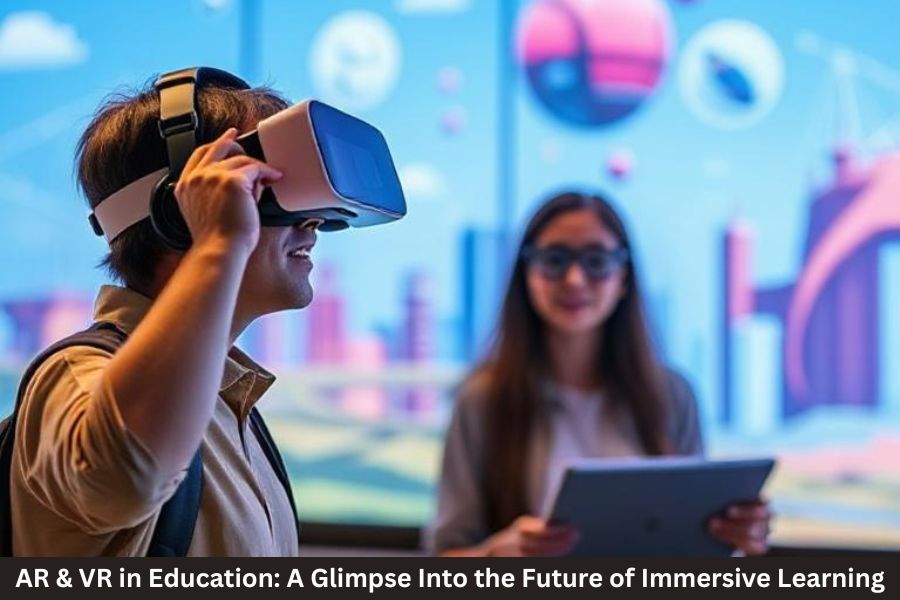Quantum computing is one of the most exciting and transformative technologies on the horizon. Unlike traditional computers, which process information in binary (ones and zeros), quantum computers use quantum bits, or qubits, which can represent and process information in multiple states simultaneously. This unique property allows quantum computers to solve certain complex problems at speeds that would be impossible for classical machines.
What is Quantum Computing?
Quantum computing harnesses the principles of quantum mechanics to solve problems that classical computers struggle with. While classical computers perform operations step-by-step, quantum computers perform calculations in parallel, making them incredibly powerful for specific tasks.
Key Principles Behind Quantum Computing
There are several fundamental concepts that make quantum computing so powerful, including quantum superposition and entanglement. These principles allow quantum computers to perform many calculations at once, giving them an edge in solving problems like optimization, simulation, and cryptography.
The Evolution of Quantum Computing
A Brief History of Quantum Computing
The journey of quantum computing began in the 1980s with physicists like Richard Feynman and David Deutsch, who proposed that quantum mechanics could be used for computation. However, it wasn’t until the late 1990s and early 2000s that real-world advancements started to emerge, thanks to companies and research labs investing in building practical quantum systems.
Key Milestones in the Field
- 1994: Peter Shor’s algorithm demonstrated that quantum computers could efficiently factor large numbers, threatening current encryption methods.
- 2009: IBM and Google started developing quantum processors.
- 2019: Google claimed to have achieved “quantum supremacy,” solving a problem faster than any classical supercomputer could.
- 2023: Advances in error correction, quantum memory, and qubit coherence have paved the way for more robust quantum systems.
How Quantum Computing Works
Classical vs Quantum Computers
Classical computers process information using bits, which are binary units that can either be 0 or 1. In contrast, quantum computers use qubits, which can represent multiple states simultaneously, thanks to quantum superposition.
Qubits: The Core of Quantum Computing
Qubits are the fundamental units of quantum information. Unlike traditional bits, which are either 0 or 1, qubits can be in a state that’s both 0 and 1 at the same time (this is known as superposition). This ability allows quantum computers to process massive amounts of data simultaneously.
Quantum Superposition and Entanglement
Superposition allows quantum computers to explore many solutions at once, while entanglement — a phenomenon where qubits become linked regardless of distance — enables them to share information in ways that classical computers cannot.
The Impact of Quantum Computing on Industries
Healthcare: Advancing Medical Research and Treatments
Quantum computing could revolutionize healthcare by enabling the simulation of complex biological processes. This would lead to faster drug discovery, personalized medicine, and advanced treatments for diseases like cancer and Alzheimer’s. Quantum-powered AI could also assist doctors in making more accurate diagnoses based on large data sets.
Artificial Intelligence: Speeding Up Data Processing
Quantum computers can enhance artificial intelligence by processing and analyzing vast amounts of data in real time. This would dramatically improve AI’s ability to recognize patterns, predict outcomes, and optimize decision-making, particularly in areas like autonomous driving and natural language processing.
Cryptography: Securing Data in the Quantum Age
Quantum computing has the potential to break traditional encryption methods, but it also holds the key to developing new, more secure cryptographic techniques. Quantum encryption, using the principles of quantum mechanics, could make data transmission more secure than ever before.
Everyday Applications of Quantum Computing
Quantum-Enhanced AI in Personal Devices
In the future, quantum-enhanced AI could be integrated into personal devices like smartphones, wearables, and home assistants. These devices could process information at lightning speed, predicting your needs and adjusting your environment intelligently, all based on real-time data.
Revolutionizing Internet Search and Social Media Algorithms
Quantum computing could drastically improve the algorithms behind search engines and social media platforms. It would enable faster, more accurate recommendations based on a broader understanding of your preferences, leading to a more personalized online experience.
Optimizing Transportation and Logistics Systems
Quantum computers could optimize traffic patterns, delivery routes, and logistics systems in ways traditional computers can’t. This would lead to more efficient transportation networks, reducing congestion, fuel consumption, and carbon emissions.
The Role of Quantum Computing in Energy
Improving Battery Efficiency and Sustainability
Quantum simulations can help researchers design better, more efficient batteries. This could accelerate the development of electric vehicles and renewable energy storage solutions, leading to a more sustainable future.
Revolutionizing Solar Energy and Clean Tech
Quantum computing can also help improve the efficiency of solar panels and other renewable energy technologies by simulating complex materials at the atomic level. This would drive advances in clean energy solutions that could significantly reduce our reliance on fossil fuels.
Quantum Computing and Climate Change
Modeling Climate Scenarios with Quantum Power
Quantum computers can process massive datasets far more quickly than classical systems, enabling more accurate climate models. This could help scientists predict the effects of climate change and develop strategies to mitigate its impact.
Sustainable Practices Enabled by Quantum Simulations
Quantum computing could help optimize agricultural practices, improve water management, and support the development of new, sustainable materials — all critical in addressing the challenges of climate change.
Challenges and Obstacles
Technological and Hardware Limitations
While the potential is immense, there are significant challenges in scaling up quantum computers. Issues like qubit coherence, error correction, and maintaining quantum states at large scales need to be overcome before quantum computers become mainstream.
Quantum Errors and Stability Issues
Quantum computers are highly susceptible to errors due to the delicate nature of qubits. Researchers are focusing on developing better error-correction techniques to ensure stability and reliability in quantum computations.
The Timeline: When Will Quantum Computing Enter Daily Life?
Currently, quantum computing is mostly confined to labs and research facilities, but its potential applications are rapidly expanding. Experts predict that within the next 10-20 years, we could see quantum computers play a role in industries like healthcare, finance, and even consumer electronics.
Conclusion
Quantum computing is not just a distant dream — it’s rapidly becoming a reality with the potential to revolutionize everyday life. From enhancing healthcare and AI to solving complex problems in energy and climate change, quantum computing promises to transform the way we live and interact with technology. As we continue to push the boundaries of quantum research, the future looks incredibly bright for this groundbreaking technology
FAQs
1. What is the difference between classical and quantum computers?
Classical computers process information in binary, using bits that are either 0 or 1. Quantum computers use qubits, which can represent multiple states simultaneously, enabling much faster data processing for specific tasks.
2. Will quantum computing make current encryption methods obsolete?
Yes, quantum computers have the potential to break current encryption methods. However, quantum encryption techniques are being developed to secure data in the quantum age.
3. How can quantum computing help with climate change?
Quantum computers can simulate complex climate models, improve energy efficiency, and develop sustainable materials, all of which could help mitigate the effects of climate change.
4. When can we expect to see quantum computers in homes or businesses?
Quantum computing is still in its early stages, and it may take 10-20 years before quantum systems are widely available for everyday use.
5. What are the biggest hurdles in the development of quantum computers?
Some of the key challenges include maintaining qubit coherence, developing better error-correction methods, and scaling quantum systems to handle complex real-world problems.



